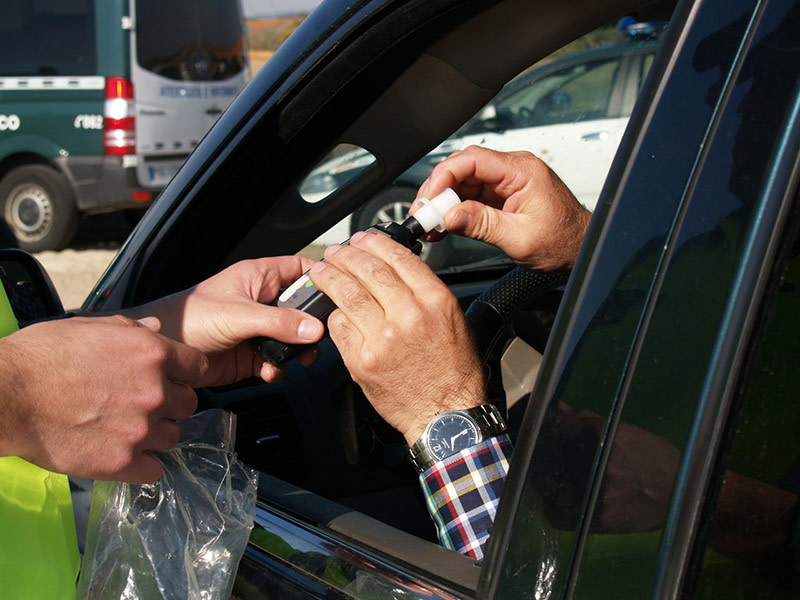
DUI Penalties: The Dire Dues of Driving Under the Influence
TABLE OF CONTENTS
You have had a great evening out with friends and family enjoying a terrific meal and libations. Time to head home. If it’s in your car, you risk being another one of the almost 1.1 million people annually convicted of driving under the influence of something that impaired their ability to be a safe driver. Let’s take a look at the potential consequences of a DUI.
KEY TAKEAWAYS
- 1
A DUI can significantly increase the cost of auto insurance, with an average increase of 86.5% for the first year after the incident.
- 2
Consequences of a DUI vary by state and can include license revocation or suspension, jail time, reinstatement fees, the need to file an SR-22, and potential job loss.
- 3
A DUI or DWI can result in restricted travel to other countries, particularly Canada.
- 4
To avoid a DUI, consider using a breathalyzer, taking a ride-sharing service or taxi, or having a designated driver.
Consequences of a DUI Overview
The average cost of auto insurance in 2014 was $907 per year. Having a DUI increases the price of your insurance by 86.5% on average. Thus, along with other consequences of a DUI, you’ll end up paying an average of an extra $784.55 for the first year after the incident. This increase will gradually decline in subsequent years. Overall, these DUI related premium increases typically last 3-5 years.
For comparison, assume an average taxi cost is around $15. One could take a ride over 50 times for the same cost to avoid a DUI. Furthermore, if convicted and your license gets suspended for 6 months, the same cost of those rides (if needed on a daily basis) could run upwards of $2700.
Aside from the increase in insurance rates, there will be other consequences of a DUI which vary state by state.
Eight Most Likely Consequences of a DUI
The driver has their license revoked or temporarily suspended for 90 days or more. This can occur either via court order and/or automatically by the state DMV.
If the arrest involves the driver’s refusal to take a breathalyzer or blood test, their license will automatically be suspended regardless of the outcome of the case.
Most states will require at least a few days minimum jail time, but 6-12 months is also a possibility, even with a first offense.
If the driver has prior convictions, their license may get suspended for a year or more, with longer jail time more likely.
Reinstatement of a license can cost additional fees, which may be significant. See our
Driving Without Insurance article for state-specific reinstatement fees.
The driver could lose their job permanently depending on their employment contract. Many contracts allow for dismissal if convicted of a crime, and as discussed below, a DWI applies as one.
The driver will need to file an SR-22, typically for the following three years. This labels you as a 'high-risk' driver, and your current insurer may drop you as a result. If you need to find a new insurer we can help.
Travel to other countries, Canada in particular, may be restricted (see below for more details).
Do You Lose Your License Immediately after a DUI?
In almost all DUI and DWI cases, the offender will lose his or her driving privileges, at least temporarily. Whether it happens immediately depends on the state. Worthy of note: refusal to take a blood, breathalyzer, or field sobriety test is grounds for immediate license suspension in many of them.
License suspension can happen either via court order (judicial suspension), the DMV (administrative suspension), or both. After the suspension period is complete, the driver will often then be required to go a certain period of time with an ignition interlock installed in their car (a breathalyzer built into the car’s ignition system).
What are the Legal Limits?
The legal limit for blood alcohol content in every state is 0.08%, except Utah where it is 0.05%. As mentioned, the penalties vary by state. The Global Health Security Agenda (GHSA) has a useful PDF that summarizes some of these differing penalties in each state. While a driver is probably safe with one drink in the past hour, their blood alcohol can rise quickly with subsequent beverages.
Pro tip: a top-of-the-line breathalyzer costs about $125, though decent ones are available for as little as $20-$80. If you’re remotely at risk of driving inebriated, it’s easily a worthwhile investment to let you know whether it’s legal to drive.
The Difference Between DWI and DUI and Other Acronyms
Similar to the consequences of a DUI varying by state, the name for the crime itself can differ depending on where one life. Furthermore, some states will use one acronym to distinguish between driving under the influence of alcohol versus other drugs. States may also treat two acronyms as differing severities of the same crime. For instance, a state may treat DUI and DWI as two tiers of severity for the crime of driving drunk.
The Aggravated DWI is another example and is a step more severe than a regular DWI. This typically happens when a driver’s blood alcohol content (BAC) rises significantly higher than the allowed limit, or if minors exist in the vehicle. In New York, for example, the legal limit is 0.08%. The ADWI limit is 0.18%, which isn't hard to reach after a few drinks. As such, the consequences are correspondingly more severe. The driver is often charged with a felony instead of a misdemeanor, with a greater possibility of lengthy jail time. As mentioned above, the PDF provided by the GHSA has more state-specific details about these higher limits.
Possible acronyms glossary
OVI or OWI ↔ Operating Vehicle While Intoxicated
OMVI ↔ Operating a Motor Vehicle while Impaired
DUII / DUII-CS ↔ Driving Under the Influence of Intoxicants / Controlled Substances
DUI ↔ Driving Under the Influence
OUI ↔ Operating Under the Influence
DWAI ↔ Driving While Ability is Impaired
DWI ↔ Driving While Intoxicated
Of these, the DWAI is generally the least severe. For example, New York treats it as a violation, while Colorado considers it a misdemeanor. In terms of ranking severity, violations and infractions are not considered crimes. Misdemeanors and felonies are crimes because they pose the possibility of probation or jail time. Of those, felonies are the most seriously severe.
What Happens if a Minor Gets a DUI? Zero Tolerance.
A term often associated with DUIs, the zero tolerance law means that offenders get charged with an automatically determined penalty. The penalty applies regardless of extenuating circumstances or individual culpability. It mostly applies to drivers under the age of 21, for who the law permits little leeway. Many states allow a small margin of error with a .01% or .02% limit, but some don't allow any.
Out of State DUI
What happens if a driver receives a DUI in a state that is not their own? In most cases, the home state honors the other state's charge as though committed in their state. The only exceptions are if the crime occurs within Georgia, Massachusetts, Michigan, Tennessee, or Wisconsin, which are not members of the interstate Driver License Compact.
However, that doesn’t mean the driver is off the hook in those states; quite the opposite. Instead of addressing the charge in their own state’s judicial system, they’ll likely have to do so in the state it occurred. In Tennessee, the consequences of a DUI involve jail time for between 2 days and 12 months, along with a $350-$1000 fine, required safety class, and possible community service. If they live across the country, this could be quite a headache.
Can You Get Into Canada With a DUI?
Perhaps surprisingly, it’s quite likely someone who has a DUI on their record within the past 10 years will be unable to enter Canada, regardless of whether they plan to drive while there. Because of the Canadian Immigration and Refugee Act, it doesn’t matter whether the crime in the US was charged with a misdemeanor--it’s what the crime is considered under Canadian law that matters.
In this case, DUIs count as hybrid offenses that can apply as either a misdemeanor or a felony, depending on the circumstances. As such, because it has the possibility of being a felony, it is grounds for preventing someone from entering the country. Interestingly, this doesn’t apply only to DUIs. An individual convicted of any crime that is considered an “indictable offense” (felony) in Canada will very likely be turned away at the border.
There are two to three possible ways to still get around this. The first is by applying for a Temporary Resident Permit (TRP). This allows someone to enter and stay in Canada for a certain amount of time (up to three years), assuming they have a valid reason to visit. This can take some time to get approval, so best to plan well in advance. The other method is a “Criminal Rehabilitation” application. This application requires that all fines and penalties be paid and served at least five years ago. Unlike the TRP, this has no expiration once approved. However, if a driver has more than one prior DUI conviction, both of these options are likely off the table, even 20+ years later.
Conclusion
As we've seen, aside from the 18-300% increase in insurance prices, a DUI carries many other significant penalties that provide a strong incentive to avoid getting behind the wheel after a few drinks. Clearly, many people do so anyway, but the reasons why are unclear. Taxis, and services such as Lyft and Uber provide an alternative.
Their cost is far less than the potential price of the DUI, even if used semi-frequently. In addition, the low cost of personal breathalyzers makes determining whether it's safe to drive a very cost-effective option compared to the potential consequences of a DUI.
TABLE OF CONTENTS


Trying to find the best insurance?
We'll help you find the policy that offers the best value for your situation.
Further Reading

Navigating the Digital Insurance Landscape Considerations
A look at the immense value and high customer lifetime potential within the insurance sector.
Read article

When is Term Life Insurance Worth it?
Decide if term life's advantages are worth it: compare whole vs term life insurance, assess top term providers, and delve into in-depth reviews.
Read article

Insurance Binder: Bridging Between Coverage and Confirmation
From car loans to rental properties, insurance binders are required in a variety of situations. Discover the ins and outs of these essential documents.
Read article

Haven Life Review: Providing Prudent and Protective Policies
Uncover the benefits and drawbacks of Haven Life's term insurance policies, along with eligibility details, pricing, and customer feedback..
Read article
Start Comparing Quotes
Search from our learning center to learn everything from how to easily switch your car insurance to the ins and outs of home insurance.
Fill out just one form and get multiple quotes!


